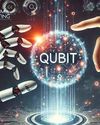
Artificial intelligence (AI) and machine learning (ML) have become integral components of modern technology, revolutionising industries and improving various aspects of our lives. AI/ML technologies enable computers to learn from data, recognise patterns, and make decisions with minimal human intervention.
From personalised recommendations on streaming platforms to autonomous vehicles, AI/ML is driving innovation and transforming the way we interact with technology.
Open source languages like Python, R, and Julia are vital in AI/ ML development, offering accessible tools and frameworks for sophisticated models. Their availability fosters collaboration and innovation in the developer community, supported by their ease of use, rich libraries, and active community, making them ideal for AI/ML projects.
Overview of open source languages for AI/ML
Choosing the right programming language is crucial for AI/ML projects as it determines the ease of development, performance, and compatibility with existing systems. Factors to consider include the language's suitability for data manipulation, availability of libraries/frameworks, and community support.
The main open source languages used in AI/ML development are listed above.
Python for AI/ML Python has become one of the most popular programming languages for AI/ ML development due to its simplicity, readability, and the availability of a vast array of libraries and frameworks tailored for machine learning tasks. Its versatility and ease of use have made it a preferred choice for both beginners and experienced developers in the AI/ ML community.
Key Python libraries and frameworks for AI/ML are briefly described below.
Diese Geschichte stammt aus der April 2024-Ausgabe von Open Source For You.
Starten Sie Ihre 7-tägige kostenlose Testversion von Magzter GOLD, um auf Tausende kuratierte Premium-Storys sowie über 8.000 Zeitschriften und Zeitungen zuzugreifen.
Bereits Abonnent ? Anmelden
Diese Geschichte stammt aus der April 2024-Ausgabe von Open Source For You.
Starten Sie Ihre 7-tägige kostenlose Testversion von Magzter GOLD, um auf Tausende kuratierte Premium-Storys sowie über 8.000 Zeitschriften und Zeitungen zuzugreifen.
Bereits Abonnent? Anmelden

Amazon Bedrock: A Boon for the Financial Services Industry
Amazon Bedrock is a fully managed service that provides access to foundation models from top AI providers, enabling organisations to build and scale generative AI applications. It is specifically designed to bring AI solutions to the financial sector. Let's explore all that it can do...

Quantum-Safe VPNs: The Future of Secure Communication
As quantum computing continues to advance, it poses a significant threat to traditional cryptographic algorithms that secure our digital communications. Virtual private networks (VPNs), which rely heavily on encryption, are particularly vulnerable. Quantum-safe VPNs utilise post-quantum cryptographic algorithms to protect against quantum attacks.

Popular Open Source Toolkits for Quantum Machine Learning
Quantum machine learning is becoming increasingly popular due to its ability to solve the complex problems of the AI age. Here are a few open source libraries and frameworks that help with quantum computations.

Quantum Computing: Harnessing Open Source for Innovation and Accessibility
We explore how open source initiatives are shaping the future of quantum computing, making it more accessible and driving innovation through collaboration.

How Quantum Computing Differs from Classical Computing
Despite being in its infancy, quantum computing has numerous potential applications in modelling, cybersecurity, AI/ML, and other fields. But how do quantum and classical computing compare with each other? Let's find out...

From Bits to Qubits: The Growth Story of Quantum Computing
Quantum computing may still be in the early stages of evolution, but its potential impact on everyday life is significant. We delve into the key concepts behind it, the reasons for its rapid growth, and how global advancements are shaping its future.

Pytket: A Comprehensive Guide to Quantum Circuit Design
Pytket stands out as a powerful toolkit in the realm of quantum computing, offering a suite of features that cater to both researchers and industry practitioners. Its key strengths include optimisation, platform-agnostic support, flexible quantum circuit design and hybrid algorithm support. These features make Pytket a versatile tool for various quantum computing applications, from machine learning and cryptography to optimisation problems in industrial settings.

Cirq: The Open Source Framework for Programming Quantum Computers
Explore the key features, capabilities, and impact of Cirq, an open source quantum computing framework developed by Google, on the quantum programming landscape.

The Role of Open Source in Accelerating Quantum AI
Here's an overview of how open source frameworks are being utilised to build quantum machine learning models, including quantum neural networks and quantum kernel methods. The challenges and future directions in the quantum AI landscape are also discussed.

Quantum Machine Learning: An Overview
Quantum machine learning (QML) is a burgeoning field at the intersection of quantum computing and artificial intelligence. In recent years, the integration of quantum mechanics with machine learning algorithms has sparked substantial interest among researchers and technologists alike. Here's a quick look at the essentials of creating quantum algorithms for AI models, their practical use cases on open source platforms, and best practices for implementing these advanced algorithms.